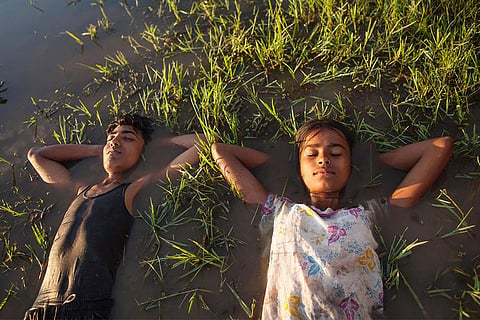
- Reviews
- Power List 2024
- Cannes 2024
- In-Depth Stories
- Web Stories
- News
- FC Lists
- Interviews
- Features
- FC SpecialsFC Specials

A cursory glance at this year's Mumbai Film Festival lineup will tell you that filmmaking no longer has to be a hyper expensive affair. From mid-budget productions shot by small crews, to entire feature films being shot on nothing more than an iPhone, it is evident that today there's nothing that can stop the independent filmmaker from telling a story. Assamese filmmaker Rima Das is a shining example of this. Her film Village Rockstars which won much acclaim at the recent Toronto International Film Festival, was shot over 150 days spanning 3 years. Das is the writer, director, producer, editor, and art director on the film. Her actors were untrained and the only other crew member on-set was her cousin.
Although Village Rockstars' market budget was set at $100,000, Das says she worked with an "invisible budget", using the money she had saved from corporate films, music videos and loans from family. Having said that, the absence of a producer allowed her total creative control over her film. Having found success with this method, she is currently shooting her third film in the same vein, along with her cousin.
Rahul Jain, whose documentary Machines documents the life of labour workers in a textile factory in Gujarat, feels budgets are a secondary matter when one has a concept or story they believe in. His film which won the World Cinema Documentary Special Jury Award for excellence in Cinematography at Sundance, was conceived when he was studying at the California Institute of the Arts.
"Modern production techniques allow one to think of creative ways to exposit something one wants to say within limited resources", he says. While shooting, he and his DoP Rodrigo Trejo Villanueva were the only crew present. Machines was shot using two cameras – the Sony FS700 and Sony A7S2 – yet it looks lavish. Jain believes that when pursuing such an endeavour, it is crucial to be "open to discomfort."
For Berlin-based Nicolas Chevaillier, writer-director of Victor's History, micro-budget filmmaking is a conscious artistic choice. The film, which will be screened as part of the Discovering India section at MAMI this year, has been entirely shot on a Blackmagic Pocket Cinema Camera with only natural light. Victor's History is a pseudo-documentary about a proud son who hires a documentary filmmaker to immortalize his father's legacy. The bulk of the budget went towards equipment and travel costs. "We all knew what we were getting into: No crew, no catering, no hotels. Everyone was a good sport about it," he explains.
The film was made adhering strictly Dogme 95 philosophy of filmmaking, the movement started by Danish directors Lars von Trier and Thomas Vinterberg. Consisting 10 some basic rules, the idea of this approach was to emphasise elements like story and acting over expensive equipment and fancy post-production. "It was a learning experience for all of us, as we all ended up having to try our hands at a new skill. I firmly believe the new experience will help us better communicate our vision in future projects, regardless of crew size."
Haraamkhor director Shlok Sharma is a veteran in low-budget filmmaking. He says years of assisting Anurag Kashyap has taught him that less is always more. His second feature Zoo, competing at the India Gold section, has been shot entirely on an iPhone, a first of this kind in India. The idea struck him after watching American filmmaker Sean Baker's award-winning Tangerine.
"Waiting around was making me restless," says Sharma. Most of his team worked for free – including his actors and experienced editor Aarti Bajaj, who offered her services after being impressed by some raw footage she saw. The only mode of transportation he had for his 10 person crew and their equipment was a Maruti Suzuki Alto and a Swift. His lead actors would often wait at coffee shops while the crew prepared their shots.
To aspiring filmmakers with a story to tell, the underlying advice here is – just do it! Chevaillier puts it more eloquently. "Don't convince yourself that your inaction is justified because of the lack of funding. Find a few dependable friends with similar goals, and make a movie! It won't be perfect, but it'll be a lot further than most get."